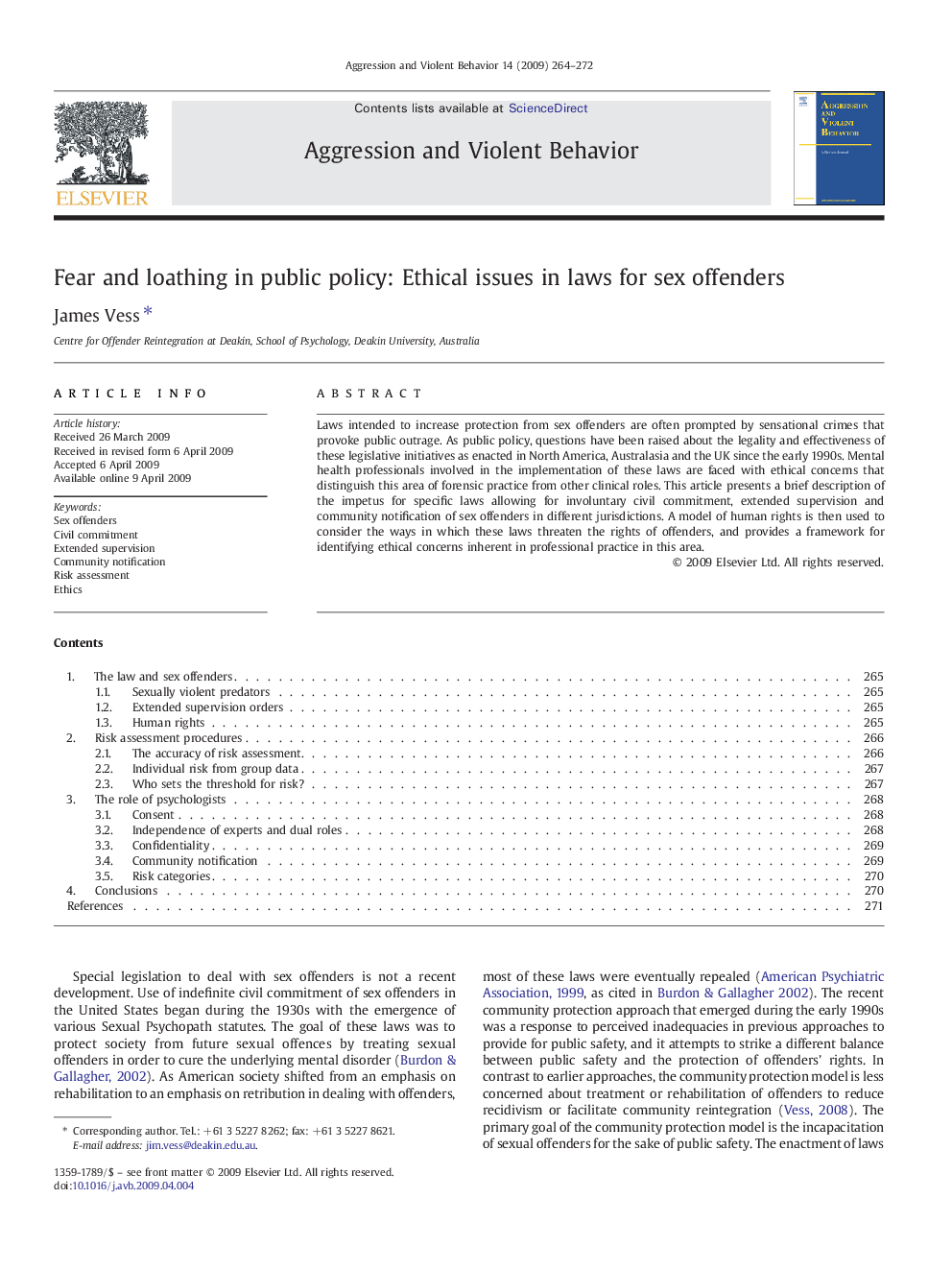| Article ID | Journal | Published Year | Pages | File Type |
|---|---|---|---|---|
| 94926 | Aggression and Violent Behavior | 2009 | 9 Pages |
Laws intended to increase protection from sex offenders are often prompted by sensational crimes that provoke public outrage. As public policy, questions have been raised about the legality and effectiveness of these legislative initiatives as enacted in North America, Australasia and the UK since the early 1990s. Mental health professionals involved in the implementation of these laws are faced with ethical concerns that distinguish this area of forensic practice from other clinical roles. This article presents a brief description of the impetus for specific laws allowing for involuntary civil commitment, extended supervision and community notification of sex offenders in different jurisdictions. A model of human rights is then used to consider the ways in which these laws threaten the rights of offenders, and provides a framework for identifying ethical concerns inherent in professional practice in this area.
